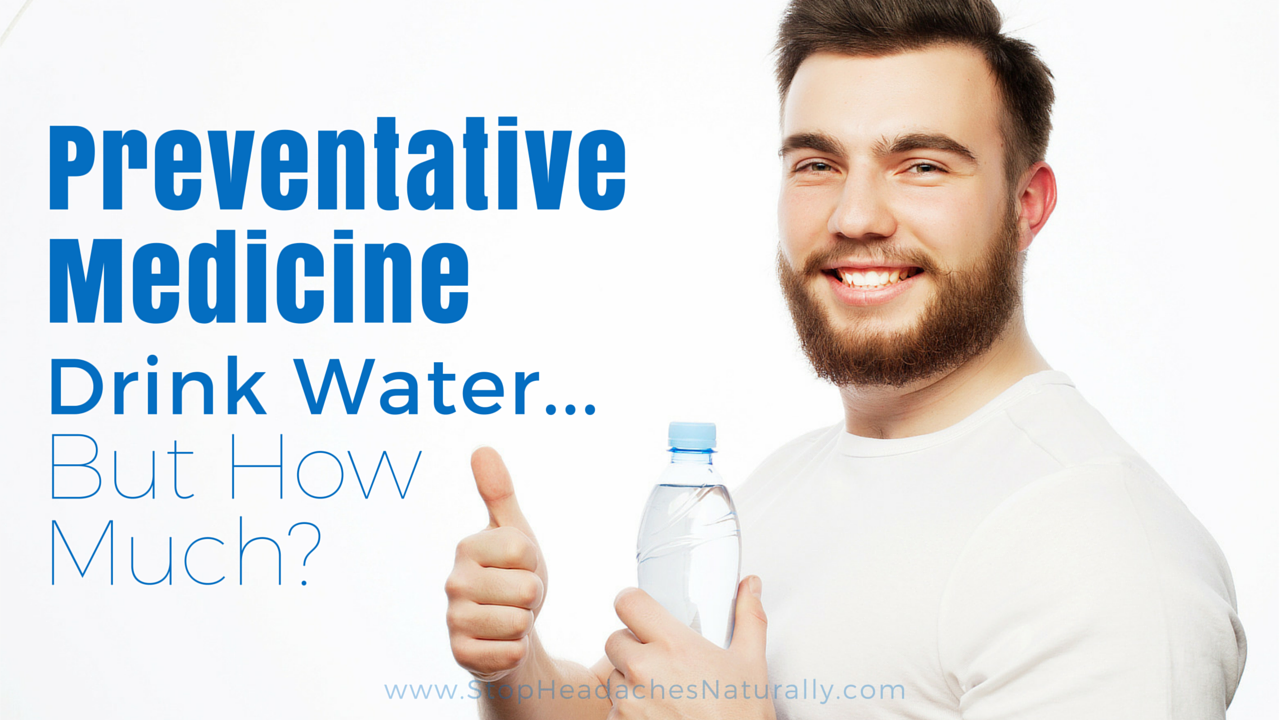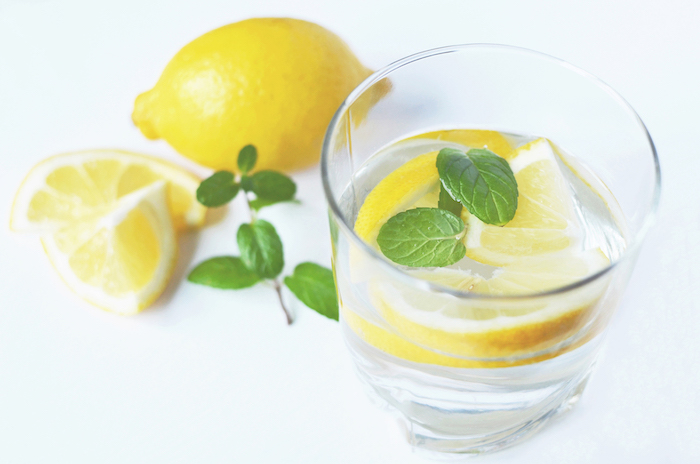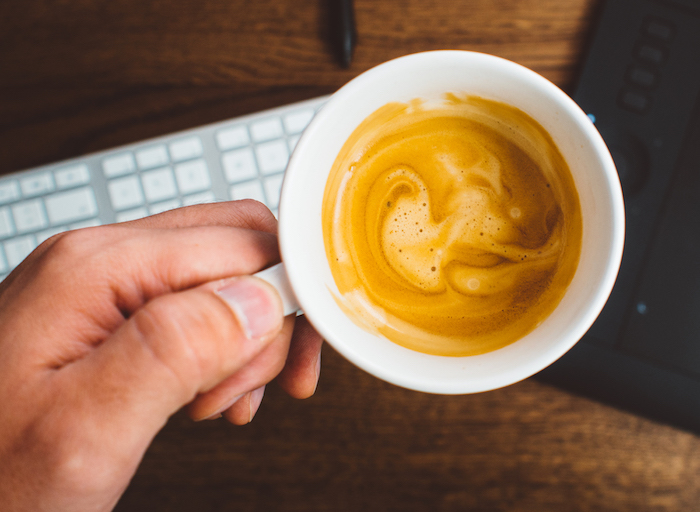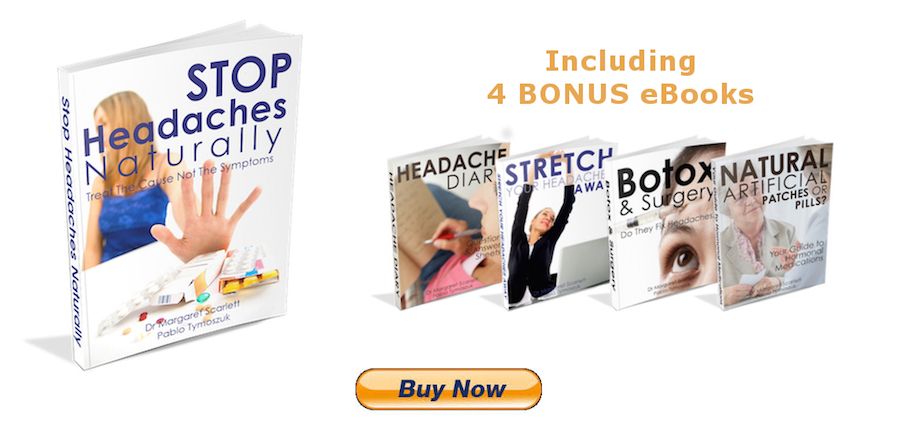Can A Happy Spouse Be Good For Your Health?

Happy hubby, happy wifey…
A recent study published in the Health Psychology Journal suggests that having a happy spouse is good for your health. Nearly 2,000 couples aged between 50 and 94 were asked about their happiness, health and exercise levels over the course of six years and these are some of the findings:
- Happy spouses are more likely to provide strong social support, such as caretaking
- Happy spouses encourage their partners to adapt healthy habits - regular exercise, eating well and adequate sleep
- Having a happy partner may enhance health and make life easier
So as the saying goes, “Happy wife, happy life” but now we can add, “Happy hubby, happy wifey.”
Arabica vs Robusta Coffee

Coffee made from Robusta beans is bitter and is commonly described as ’burnt tyres or rubbery.’
Robusta has 2.7% caffeine content, almost double the 1.5% of Arabica
"It makes sense to drink coffee only made with Arabica beans."
Arabica contains almost 60% more lipids and nearly twice the amount of sugar - that’s why it tastes better.
NOTE:
Robusta beans are primarily used in instant coffee and is also blended with Arabica beans in numerous coffee capsules. If you suffer from headaches, it makes sense to drink coffee only made with Arabica beans. This will allow you to enjoy a daily cup of coffee without the excess caffeine triggering a headache.
Caffeine is extremely stable during the roasting process so both dark and light roast coffee beans have the same amount of caffeine
Be Your Own Doctor

Even though there is so much information that can be found on the internet or health related Apps for your smart phone, one should NEVER self-diagnose or self medicate… leave that role for a well educated and qualified doctor.
But I do believe that the best medicine is prevention. For that to occur you need to take more of an active role in prescribing some of the most beneficial and effective medicine for yourself and become your own ‘doctor.’
"The best medicine is prevention"
Here is some ‘medicine’ that you can begin to take:
- Healthy & Varied Diet
- Exercise - cardio, strength & stretch
- Sleep
- Diaphragmatic breathing
- Laughter
- Keep hydrated
- Sunshine
- Positive attitude
- Pilates
- Manual Therapy
Let Food Be Thy Medicine

Hippocrates was a Greek physician who made such an impression on medical history that today he is called the father of modern medicine - some graduating medical students take the “Hippocratic Oath’ upon receiving their doctoral degree.
Even though Hippocrates did most of his work around 400 years before the birth of Christ, we can still learn a lot from his detailed observations of disease and its effects, and how health is often influenced by diet.
It’s a shame that many doctors prescribe medication without considering the benefits of a healthy diet.
The Focus Of Western Medicine Is On Treatment Rather Than Prevention

“The doctor of the future will give no medicine, but will interest his patients in the care of the human body, in diet, and in the cause and prevention of disease.”
Thomas Edison
Although there have been many medical advances since Edison’s time, the doctor is unfortunately still “giving medicine”.
The traditional approach in Western medicine has always been to diagnose a particular disease or condition from known symptoms and then to treat it with medication, surgery or various procedures.
This focus on diagnosis and treatment worked well for infectious diseases, but is not very useful for multi-factorial chronic diseases like cancer and cardiovascular disease.
At the population level, the emphasis has shifted in favour of understanding the underlying causes of disease, and prevention through improvements to lifestyle.
However this has not really been translated to the individual patient-doctor consultation.
It is not just the doctor’s fault – patient expectations also contribute to this situation. Patients sometimes complain they have not got value for money if they don’t leave clutching a prescription, but just discuss factors like diet, exercise and sleep with their doctor.
Or if the doctor does recommend various lifestyle changes, patients frequently ignore this advice and keep looking for “the magic bullet”.
And when the patient is in pain, many doctors feel helpless if they can’t provide some form of pain relief.
This is an excerpt from Stop Headaches Naturally Chapter 6.8 - The focus of Western medicine is on treatment rather than prevention
Preventative Medicine - Drink Water... But How Much?

Studies on hydration status normally focus on water balance over a 24 hour period. For water balance to be maintained, water intake must equal water losses. So how much water or other fluids will be required for this?
It is difficult to make universal recommendations. People vary widely in their water needs depending on many different factors. These include age, gender, body size and composition, health, level of physical activity, and the temperature and humidity their environment. Even working in a dry air conditioned office can lead to increased water losses that we are not aware of.
"Conflicting points of view on how much fluid (including water) you should drink per day to stay well hydrated"
There are two conflicting points of view on how much fluid (including water) you should drink per day to stay well hydrated and government health agencies and other health authorities have changed their advice over the years.
One view is “to let thirst be your guide”. This is based on defining mild dehydration as starting at 3% loss of body weight. [1] It may work for who those sweat a lot, like athletes or those doing physical activity in hot climates. But it doesn’t seem to work so well for the average person going about their everyday activities, where water loss is smaller and more gradual.

Part of the problem is that humans do not sense thirst until they have lost 1% to 2% of their body mass as water. [2] By that stage, you are already mildly dehydrated. Water has been transferred from within and between the cells of your body and into your blood-stream. In addition, some people get used to ignoring thirst signals. In others, such as the elderly, the thirst mechanism is less effective.
However the brain is 80% water. Recent research has shown that a loss of just 1.6% of body mass impaired cognitive performance and mood in healthy young men. [3] It seems reasonable to assume that a similar minor water loss can trigger a headache attack.
The alternative view on maintaining hydration status is to offer specific guidelines for an “average” non-exercising person in a temperate climate.
It is commonly assumed that about 20% of our water intake comes from food. [4] That leaves about 1700 ml to be made up by water and other beverages. It fits reasonably well with what in the US is referred to as the 8 x 8 rule – in other words drink a total of eight 8 oz glasses per day, which comes to a bit less than 2 litres.
"About 20% of our water intake comes from food. That leaves about 1.7 litres to be made up by water and other beverages"
However what is generally not emphasised by the need to spread fluid intake out evenly throughout the day. It takes time for water to be absorbed from the gut, enter the blood-stream and rehydrate the cells.
Drink too much too quickly and a lot of it will pass straight through. It can also be dangerous under some circumstances, especially when a lot of salts have been lost in sweat and these are not replaced at the same time.
What about drinks containing caffeine, like coffee, tea and some soft drinks, which have a mild diuretic effect?
Water balance studies show that these don’t cause dehydration over a 24 hour period, at least for those used to caffeine. However it is possible that increased urination could lead to temporary water losses from within brain cells and trigger a headache attack. If these losses are later made good they won’t be detected.

In any case headache sufferers need to be cautious about their caffeine intake to avoid headaches triggered by caffeine withdrawal.
Water is certainly a much better choice than sugary commercial fruit juices or soft drinks which can cause your blood glucose levels to spike. These drinks,[5] and even diet soft drinks, [6] have also been linked to progressively putting on body fat over time.
"We suggest you aim to drink roughly 1.5 litres of water evenly spread out over the whole day, and 20% derived from your diet, it will provide a total fluid intake of about 2 litres"
In the absence of any better evidence, we suggest you aim to drink roughly 1.5 litres of water evenly spread out over the whole day, giving a total fluid intake of about 2 litres.
Even if you don’t like water, this is an achievable target, provided you gradually replace some of your other beverages by water.
You could also try filtering tap water (this is a lot cheaper than bottled water) and adding a slice of lemon.
[1] H Valtin (2002). “Drink at least eight glasses of water a day.” Really? Is there scientific evidence for “8 x 8”?” Am J Physiol Regul Integr Comp Physiol, 283(5): R993 –R1004.
[2] LE Armstrong (2012). “Hydration Biomarkers During Daily Life: Recent Advances and Future Potential.” Nutrition Today, 47(4): Supplement 1: S3 - S6.
[3] MS Ganio, LE Armstrong, DJ Casa, BP McDermott, EC Lee, LM Yamamoto, S Marzano, RM Lopez, L Jimenez, L Le Bellego, E Chevillotte and HR Lieberman (2011). “Mild dehydration impairs cognitive performance and mood of men”. Br J Nutr, 106(10): 1535-1543.
[4] E Perrier, S Vergne, A Klein, M Poupin, P Rondeau, L Le Bellego, LE Armstrong, F Lang, J Stookey and I Tack (2013). “Hydration biomarkers in free-living adults with different levels of habitual fluid consumption”. Br J Nutr; 109(9): 1678–1687.
[5] VS Malik, A Pan, WC Willett and FB Hu (2013). “Sugar-sweetened beverages and weight gain in children and adults: a systematic review and meta-analysis”. Am J Clin Nutr; 98(4): 1084-1092.
[6] ML Power and J Schulkin (2013). The Evolution of Obesity, p117-118, JHU Press.
Don’t Let Your Thirst Dictate Your Water Intake

Dehydration may seem a mild problem but even at a moderate level it can cause a lot of distress to an otherwise healthy person - if the problem is severe, it can even become life threatening. Our body is about 70% water and any decrease in this level can lead to many uncomfortable ailments including headache and migraines. So if you suffer from such complaints, it is important to keep your body well hydrated.
What is dehydration?
Dehydration is basically a deficiency of water in our body. In order for our body to function optimally, the balance between electrolytes and water needs to remain normal. When this balance is disrupted, we suffer from a number of physical symptoms that are collectively known as dehydration.
Common symptoms of dehydration
Following are a few of the most striking symptoms of dehydration:
• Headache
• Excessive thirst
• Dryness of mouth
• Dry, wrinkled skin with decreased elasticity
• Fatigue and weakness
• Muscle pain
Relation between dehydration and headache
The reason behind this is not clear but some studies have shown that it is due to the constricted blood vessels in the head that are trying to regulate the fluid levels and conserve water. This creates a deficiency of blood supply and therefore oxygen to the brain, creating a headache.
Dehydration can cause headaches and even trigger a migraine attack. The amount of pain may vary from person to person. It can be felt either in the front or back of the head or only on one side. There are some people who feel it throughout the entire head, mimicking a tension headache. A common symptom of a dehydration headache is increased pain with any head movement or walking.
Treating a dehydration headache
In order to treat a dehydration headache, you simply have to drink some water to rehydrate your body. It is best not to drink too fast. Instead, slowly drink 2-4 glasses of water and your headache will subside within a couple of hours. In some cases when you are unable to consume food or if a child is dehydrated, drink fluids that contain electrolytes such as a sports drink.
It is also important to rehydrate without sweating otherwise you will continue to lose fluids. So move to a cool environment or find some shade.
If the problem persists, it is best to consult a doctor who will prescribe I.V. fluids for faster recovery from dehydration.
Preventative measures
Drinking enough water throughout the day is the best way to prevent dehydration headaches. Although 6 - 8 glasses of water (1.5 - 2 litres) is considered ideal, this will vary according to your weight, physical activity and whether you live in a warmer climate or higher altitude.
Many people fall in the trap of never drinking enough water because they never feel thirsty - don’t let your thirst dictate your water intake. It is recommended to drink enough water so your urine is clear and a pale yellow colour.
Refrain from alcohol and excessive caffeine, because they act as a diuretic – leading to dehydration. Fruits and vegetables are great for health and energy but they are not a substitute for drinking water.
Image: spongysponge
________________________
Pablo Tymoszuk is a soft tissue therapist specialising in remedial, myofascial and dry needling techniques. He also acts as an ergonomic specialist and wellness consultant which has motivated him to co-author the eBook Stop Headaches Naturally.
Together with Dr Margaret Scarlett they present a range of strategies for stopping headaches and migraines without drugs. All strategies are organized in a systematic manner and backed up by references to the scientific literature.
You’ve Been Drinking Coffee at the Wrong Time and Here’s Why

Life is too short for bad coffee and I have to admit that I have become a coffee snob. So when I enjoy my daily espresso (hard core, I know), it certainly needs to be good!
Even though coffee has numerous health benefits, it is important to limit its intake, especially if you suffer with headache and migraine pain. For that reason the following article by Daily Health Post [1] caught my attention... when is the best time of the day to enjoy my perfectly roasted and freshly ground coffee bean from Costa Rica... that has a sweet cherry aroma and leaves a creamy mouth feel with a crisp red apple finish?
Enjoy the read...
Americans LOVE their coffee (I would say Australians LOVE their coffee as much, if not more than Americans). It's estimated that eighty percent of all adults drink caffeine on a daily basis and of those, over half are taking it in coffee.
Coffee has been studied probably more than other beverage in recent years and the majority of conclusions are positive. Decidedly so.
A healthy stimulant
Coffee improves memory, combats diabetes, contains antioxidants, and of course, increases our energy. Most people don't realize that coffee reduces the risk of liver, oral, and skin cancers, and neurodegenerative disease:
"The findings of the previous studies are somewhat inconsistent, but most studies (3 out of 5) support coffee's favorable effects against cognitive decline, dementia or AD. In addition, two studies had combined coffee and tea drinking and indicated some positive effects on cognitive functioning. For tea drinking, protective effects against cognitive decline/dementia are still less evident. In the CAIDE (current) study, coffee drinking of 3-5 cups per day at midlife was associated with a decreased risk of dementia/AD by about 65% at late-life." [2]
People drink coffee because it tastes good and provides a legal buzz that makes the morning zip by.
Get the most zip from your cuppa

If you want to get the most of your (first) morning coffee, you may want to wait a little bit before you drink it. When you wake up, a hormone called cortisol - the 'stress hormone' - that's created by the adrenal glands kicks into gear to get all your systems functioning. You naturally get an energy boost.
By drinking caffeine first thing, you feed your energy level when it's already revving up. If you wait ninety minutes to a couple of hours after you get up, your timing will be jibe with your body's natural energy flow and turn it up just as it starts to flag.
If you wake up at 7:00, let's say, waiting at least 8:30 before you drink any caffeinated beverage will get the most out of ot, energy wise. Caffeine works by blocking energy regulators called adenosine that tell your body you're becoming fatigued.
Adenosine builds up during the day as you expend energy until melatonin is released as it gets dark outside to tell your body it's getting time to wind down and go to sleep. By blocking adeosine, your brain doesn't feel tired. Zippa-dee-doo-dah!
There's a time for everything
The best time for caffeine is then mid-morning, between when you awaken and when you eat lunch to keep energy levels even. If you drink an afternoon cup, too, the same reasoning holds: about half-way between lunch and dinner. Watch that second cup, however: studies have shown that drinking coffee less than 6 hours before bed can interfere with your sleep.
Given our love of caffeine, there are some downsides to drinking it regularly: it can affect our sleep, is addictive, can cause headaches and affect moods.
It’s all about moderation.
sources:[1] [2]
Pablo Tymoszuk is a soft tissue therapist specialising in remedial, myofascial and dry needling techniques. He also acts as an ergonomic specialist and wellness consultant which has motivated him to co-author the eBook Stop Headaches Naturally.
Together with Dr Margaret Scarlett they present a range of strategies for stopping headaches and migraines without drugs. All strategies are organized in a systematic manner and backed up by references to the scientific literature.
Can A Smoothie Help Reduce Inflammation?

Chronic inflammation in the body leads to advanced aging and disease. It can be caused by many different factors including diet, allergy, stress, or injury. Determining cause allows us to take steps to manage or eliminate the problem and the foods we eat are key in treating any physical condition, including inflammation.
There are some foods that we know cause inflammation in the body: sugars, trans fat, dairy, alcohol, and chemicals in food, among others. We can avoid them if we know what they are.
If you are concerned about inflammation, whether you are feeling its effects or just want to support your immune system, here is a delicious smoothie to do that.
Let’s Review The Ingredients
Berries contain antioxidant phytonutrients called flavonoids (specifically, anthocyanin) in their skins that exhibit anti-inflammatory properties. They are the pigment that give berries their color.
Dark leafy greens are full of nutrients: vitamins, minerals, and antioxidants that support every system in your body. Magnesium in particular is important for inflammation regulation and kale, spinach, beet greens, okra, and broccoli are especially rich in this mineral.
Ginger is a magical plant. It aids digestion, prevents cancer, eases arthritis pain, and inhibits the formation of arterial plaque through its anti-inflammatory phytochemical gingerol.[1]
Coconut oil is a healthy, nutrient-rich saturated fat that has a positive influence on your body, specifically:
“The anti-inflammatory, analgesic, and antipyretic effects of VCO [virgin coconut oil] were assessed. In acute inflammatory models, VCO showed moderate anti-inflammatory effects on ethyl phenylpropiolate-induced ear edema in rats, and carrageenin-[sic] and arachidonic acid-induced paw edema. VCO exhibited an inhibitory effect on chronic inflammation by reducing the transudative weight, granuloma formation, and serum alkaline phosphatase activity. VCO also showed a moderate analgesic effect on the acetic acid-induced writhing response as well as an antipyretic effect in yeast-induced hyperthermia.”[2]
Chia seeds are high in omega-3 fatty acids (with eight times more than salmon!) which are critical for cell health. These building blocks reduce inflammation, thereby decreasing the risk for cardiovascular and neurodegenerative disease.[3] Flax seeds and walnuts are good substitutions.
Green tea contains antioxidants that reduce inflammation and may inhibit tumor growth. Black tea also reduces inflammation in the body but green tea somewhat more so, probably due to its higher flavonoid content.[4] Green tea has less caffeine than black tea; the level can range from 10-22mg per eight-ounce cup. This is in contrast to black tea which contains 22-28mg of caffeine. (The longer it steeps, the more caffeine is released.)
The Anti-inflammatory Smoothie
Ingredients:
• 1 cup berries of your choice (blueberries, raspberries, cranberries, blackberries, strawberries)
• 1 cup leafy greens of your choice (kale, spinach, beet greens), compressed
• 2-inch (5 cm) piece of ginger
• 1 tablespoon unrefined organic coconut oil
• 1 teaspoon (or more, to taste) of fresh chia seeds
• Green tea, steeped to desired strength
• Honey, maple syrup, or stevia to taste to sweeten, if desired
Directions:
Put all ingredients in a blender and mix well. Drink immediately to enjoy the most nutritional benefits.
For a cold-weather drink that warms, soothes, and has a huge anti-inflammatory impact, try golden milk.
Source
[1] [2] [3] [4]
Pablo Tymoszuk is a soft tissue therapist specialising in remedial, myofascial and dry needling techniques. He also acts as an ergonomic specialist and wellness consultant which has motivated him to co-author the eBook Stop Headaches Naturally.
Together with Dr Margaret Scarlett they present a range of strategies for stopping headaches and migraines without drugs. All strategies are organized in a systematic manner and backed up by references to the scientific literature.





